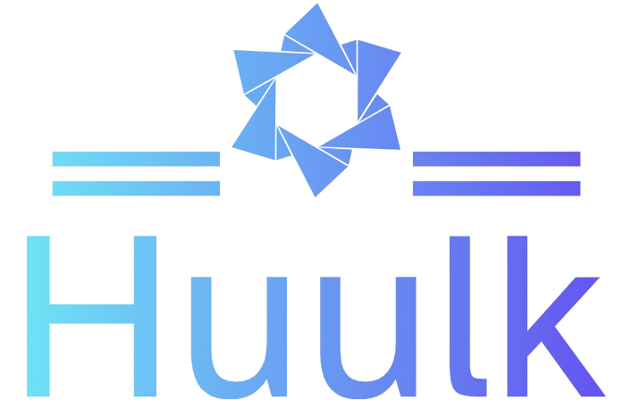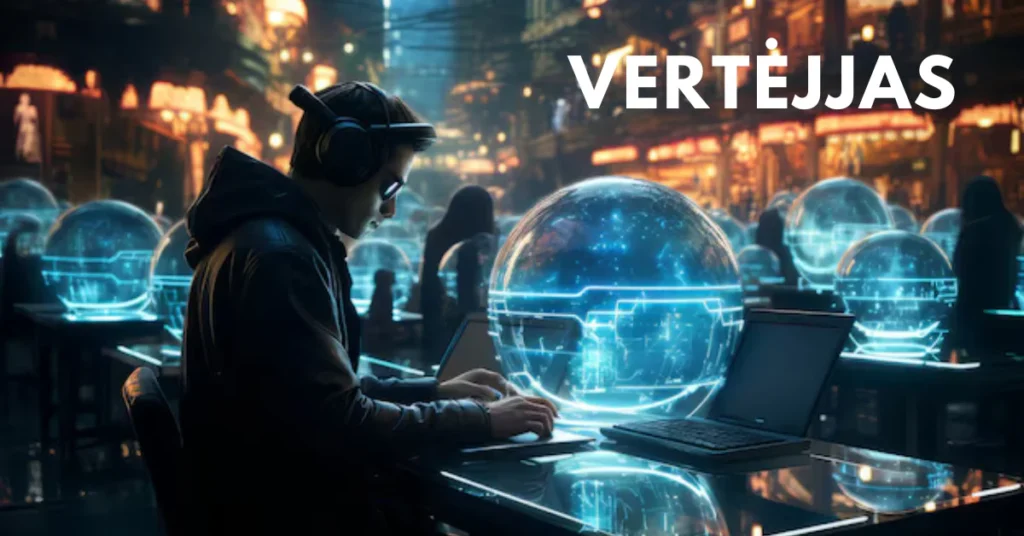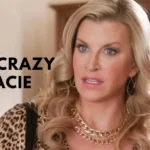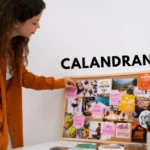Introduction to the Importance of Translation of vertėjjas
In a world that’s more interconnected than ever, the ability to communicate across language barriers is crucial. Imagine trying to negotiate a business deal or share your ideas with someone who speaks a different language. This is where the role of a vertėjjas becomes essential. A skilled translator not only conveys words but also bridges cultural gaps and ensures messages are understood accurately. As globalization continues to reshape our interactions, the importance of precise translation cannot be overstated. Whether you’re looking to expand your market reach or simply connect with others on a personal level, working with a professional vertėjaja can make all the difference in crafting meaningful communication. Let’s explore how this field has evolved and why it matters so much today.
The Evolution of Translation Technology
Translation technology has come a long way since the days of paper dictionaries and manual translation. Early tools were rudimentary, often requiring hours of painstaking work to translate even simple texts.
With the advent of computer-assisted translation (CAT) tools in the late 20th century, translators began to see significant improvements. These tools offered features like glossaries and memory databases, allowing for consistency across projects.
The rise of machine translation marked another turning point. Programs like Google Translate introduced instant translations powered by algorithms that learned from millions of data points. This made language conversion accessible to many but raised questions about accuracy.
Today, artificial intelligence is pushing boundaries further. AI-driven solutions can understand context and nuance far better than before. Translators are now harnessing these technologies while retaining their critical role in ensuring precision and cultural relevance in every translated piece. The landscape continues to evolve rapidly, merging human expertise with cutting-edge tech innovations.
The Role of a Vertėjjas
A vertėjjas plays a crucial role in bridging communication gaps between different cultures. They transform words from one language to another while preserving meaning and nuance.
This task goes beyond mere word-for-word translation. A skilled vertėjjas understands context, idioms, and cultural references that shape conversations. Their expertise ensures that the essence of the message is conveyed accurately.
In today’s global landscape, businesses rely on vertėjai for marketing materials, legal documents, and technical manuals. Without their insight, companies risk misunderstandings that could lead to significant consequences.
Additionally, personal interactions benefit immensely from professional translation services. Whether it’s medical appointments or educational exchanges, having a reliable vertėjjas fosters trust and clarity among parties involved.
With increasing globalization comes an ever-growing need for effective communication across languages. The demand for proficient vertėjai continues to rise as organizations expand their reach worldwide.
Benefits of Using a Vertėjjas
Using a vertėjjas opens doors to clear communication. Language barriers can hinder relationships and business opportunities. A skilled translator ensures your message resonates with the target audience.
Accuracy is crucial in translation. Misinterpretations can lead to costly mistakes, especially in legal or technical documents. A professional vertėjjas provides precision that automated tools often lack.
Cultural nuances are another essential aspect of effective communication. Translators understand the context behind words, ensuring that idioms and expressions maintain their intended meaning.
Moreover, employing a vertėjjas saves time and energy. Instead of struggling through translations alone, you can focus on what matters most—growing your business or connecting with clients.
Collaboration also greatly benefits from expert translation services. Whether it’s marketing materials or internal communications, having a reliable translator enhances teamwork across diverse languages.
How to Choose the Right Vertėjjas for Your Needs
Choosing the right vertėjjas can significantly impact your communication success. Start by identifying your specific needs. Are you translating legal documents, marketing materials, or technical manuals? Each area requires different expertise.
Next, assess their qualifications. Look for certifications and professional memberships that indicate credibility in the field. A seasoned vertėjjas will have a deep understanding of both source and target languages.
Consider their experience with similar projects. Ask for samples to gauge their style and accuracy. An effective translator not only conveys words but captures context and tone.
Don’t forget to check reviews or testimonials from past clients. Feedback can provide insights into reliability and professionalism.
Discuss deadlines upfront to ensure they align with your schedule. Clear communication about expectations is vital for a smooth collaboration process.
Case Studies: Companies and Individuals Who Have Benefited from Using a Vertėjjas
A leading tech firm expanded its reach into Eastern Europe, facing language barriers. They partnered with a skilled vertėjjas to translate their marketing materials and product documentation. The result? A seamless launch and increased engagement from local consumers.
In another instance, an author sought the expertise of a vertėjjas to adapt her novel for international markets. With precise translations capturing cultural nuances, the book resonated deeply in multiple languages, boosting sales significantly.
Similarly, a non-profit organization working on global health issues turned to a vertėjjas for translating vital research papers. This facilitated collaboration across borders and attracted funding from diverse sources.
Each case highlights how effective translation fosters understanding and growth. Whether businesses or individuals, leveraging the skills of a vertėjjas can open doors to new opportunities worldwide.
Conclusion: The Power of Accurate Translation in Today’s Globalized World
Accurate translation plays a crucial role in today’s interconnected world. As businesses expand across borders, the need for effective communication becomes paramount. A skilled vertėjjas not only bridges linguistic divides but also fosters cultural understanding.
With the rise of technology, translation has evolved significantly. Yet, the human touch remains irreplaceable. A qualified vertėjjas understands nuances and context that machines often miss. This expertise leads to clearer messaging and stronger relationships with clients or partners.
Choosing the right vertėjajas can enhance your reach and reputation in global markets. Whether you’re a small business owner or part of a multinational corporation, investing in professional translation services is essential for success.
As illustrated through various case studies, individuals and companies that embrace accurate translation reap significant benefits—improved communication being just one aspect. The world is more connected than ever before; therefore, ensuring your message resonates across cultures can set you apart from competitors.
Embracing precision in language opens doors and creates opportunities. As industries continue to grow globally, so does the importance of having expert translators at hand to navigate this complex landscape effectively.
FAQs
1. What is “vertėjjas”?
“Vertėjjas” is the Lithuanian term for a translator. A vertėjjas is a professional who translates written or spoken content from one language to another, ensuring that the meaning, context, and nuances of the original message are accurately conveyed. They play a vital role in facilitating communication across different languages and cultures.
2. How has translation technology evolved over the years?
Translation technology has seen remarkable advancements, from basic paper dictionaries and manual translation to sophisticated computer-assisted translation (CAT) tools and machine translation. Early tools were rudimentary, but with the introduction of CAT tools in the late 20th century and machine translation services like Google Translate, the process became faster and more accessible. Today, AI-driven translation technologies are pushing the boundaries further, offering improved context and nuance understanding.
3. What are the main benefits of using a professional vertėjjas?
A professional vertėjjas ensures clear and accurate communication by preserving the meaning and cultural context of the original message. They provide precision that automated tools may lack, avoid costly misinterpretations, and capture cultural nuances. Additionally, they save time and energy, allowing clients to focus on their core activities while enhancing collaboration across different languages.
4. How can one choose the right vertėjjas for specific needs?
To choose the right vertėjjas, start by defining your specific needs—whether for legal documents, marketing materials, or technical manuals. Evaluate their qualifications, such as certifications and professional memberships, and review their experience with similar projects. Ask for samples of their work to assess style and accuracy, check client testimonials, and ensure that their availability aligns with your deadlines.
5. Can you provide examples of how companies and individuals have benefited from using a vertėjjas?
Certainly! A tech firm expanding into Eastern Europe used a vertėjjas to translate marketing materials and product documentation, leading to a successful launch and increased local engagement. An author employed a vertėjjas to adapt her novel for international markets, resulting in significant sales growth. Similarly, a non-profit organization translated vital research papers with a vertėjjas, facilitating global collaboration and attracting diverse funding sources. These examples highlight how effective translation can foster understanding and create new opportunities.







